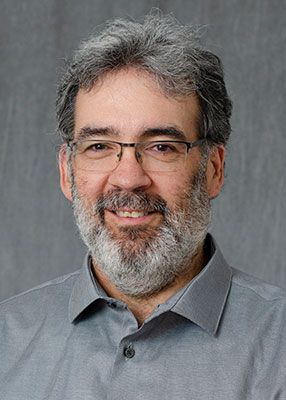
WASHINGTON (Aug. 11, 2014) — According to a recent World Health Organization report of the leading causes of death worldwide, one-third of all deaths are due to infectious and parasitic diseases. There are currently no vaccines for parasitic nematode (PN), or worm infections in humans, and development of new drugs and vaccines will stall until researchers have a better understanding of PN biology.
John Hawdon, Ph.D., associate professor of microbiology, immunology, and tropical medicine at the George Washington University (GW) School of Medicine and Health Sciences, was recently awarded $430,722 from the National Institutes of Health to develop a model system to study PN infection, which will lead to greater understanding of the infective process and the host’s immune response to infection.
Due to the requirement of an obligate host and lack of good animal models, investigations have been previously limited. However, thanks to an interdisciplinary team, which includes Hawdon, Damien O'Halloran, Ph.D., and Ioannis Eleftherianos, Ph.D., both assistant professors of biology at the GW Columbian College of Arts and Sciences, a viable model will be developed using the insect PN Heterorhabditis bacteriophora.
“The techniques we are developing will allow us to practice RNA interference and transgenesis, which will allow us to insert copies of DNA into the nematode, look at gene function, and knock out certain genes,” said Hawdon. “This research fills a need for further development of these techniques in this worm.”
The research team will focus on targeting the infective juvenile and early parasitic stages in order to investigate infection mechanisms. Their approaches will provide a foundation for future investigation into the mechanism of PN infection.
The development of these methods for gene knock down, or reverse genetics, and transfection in this novel model nematode would represent a significant advance for PN research, and will facilitate investigation of PN gene function during infection.


